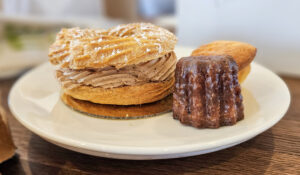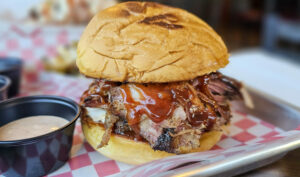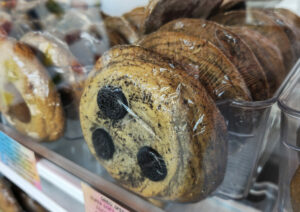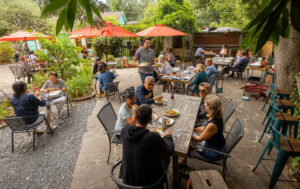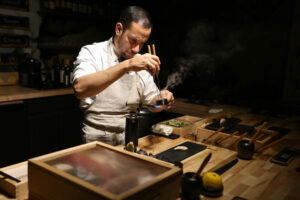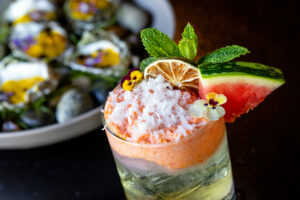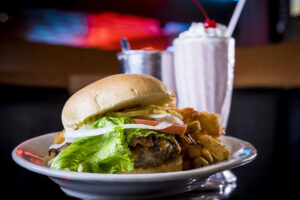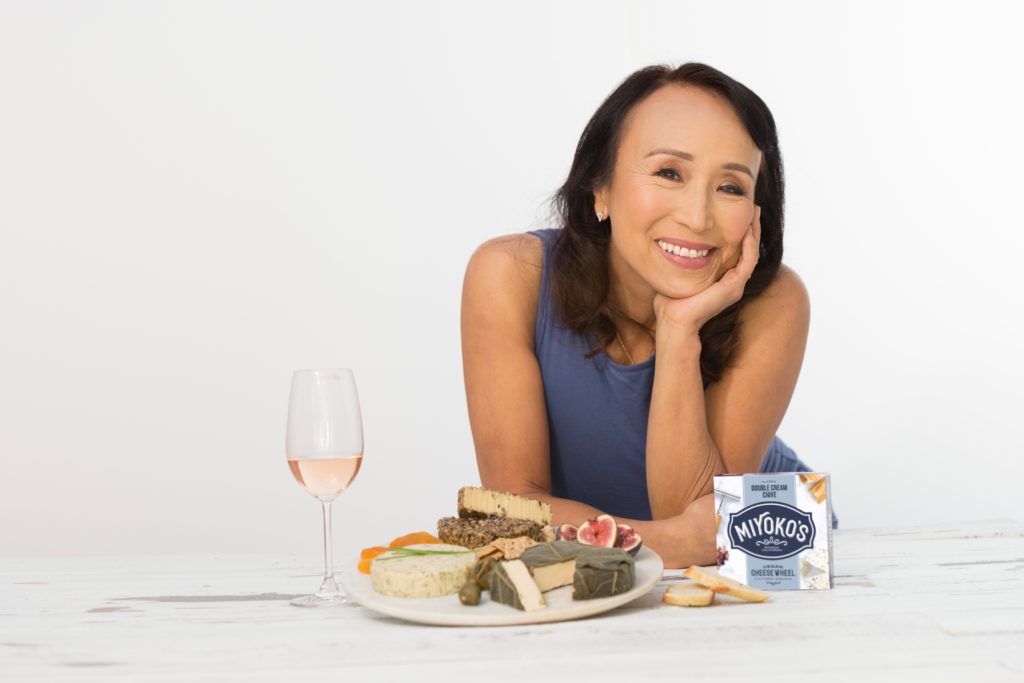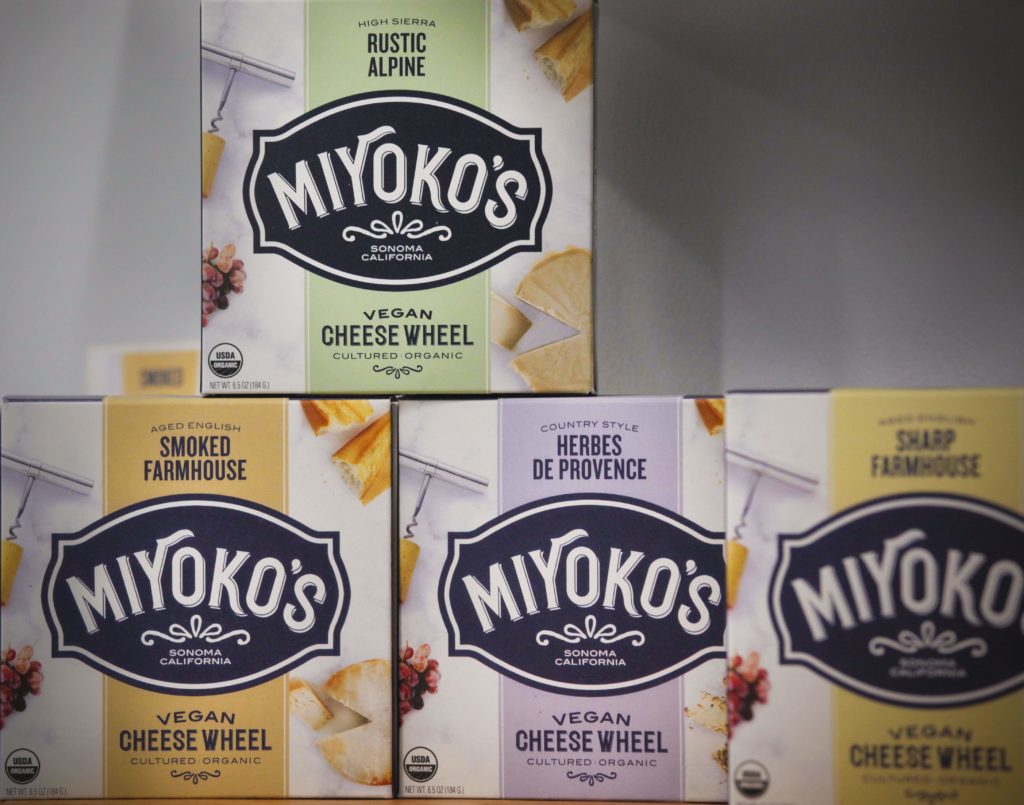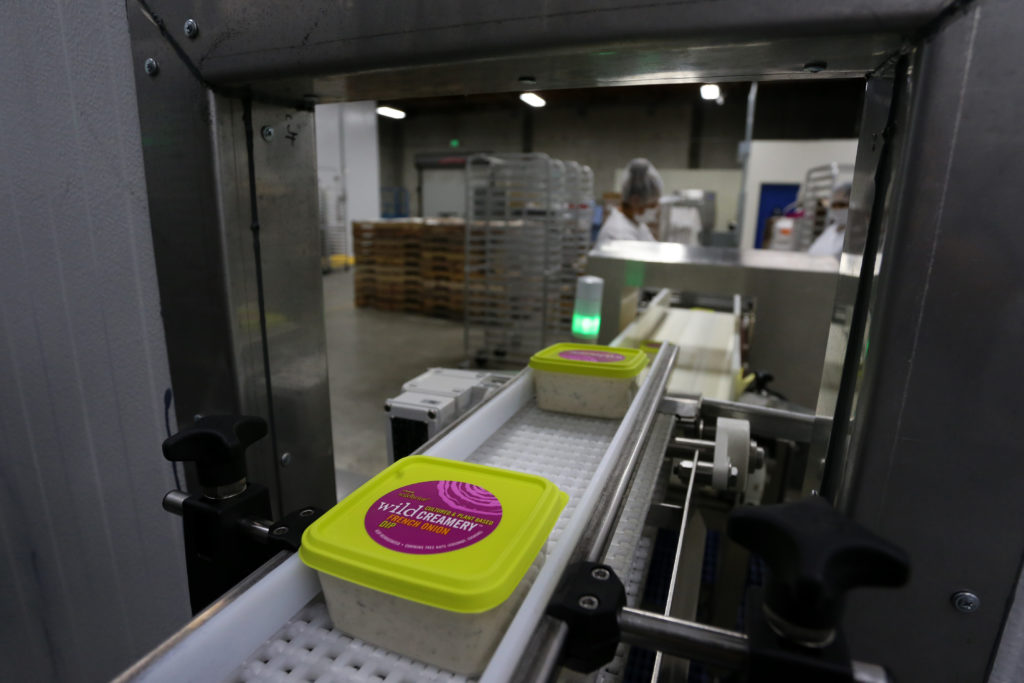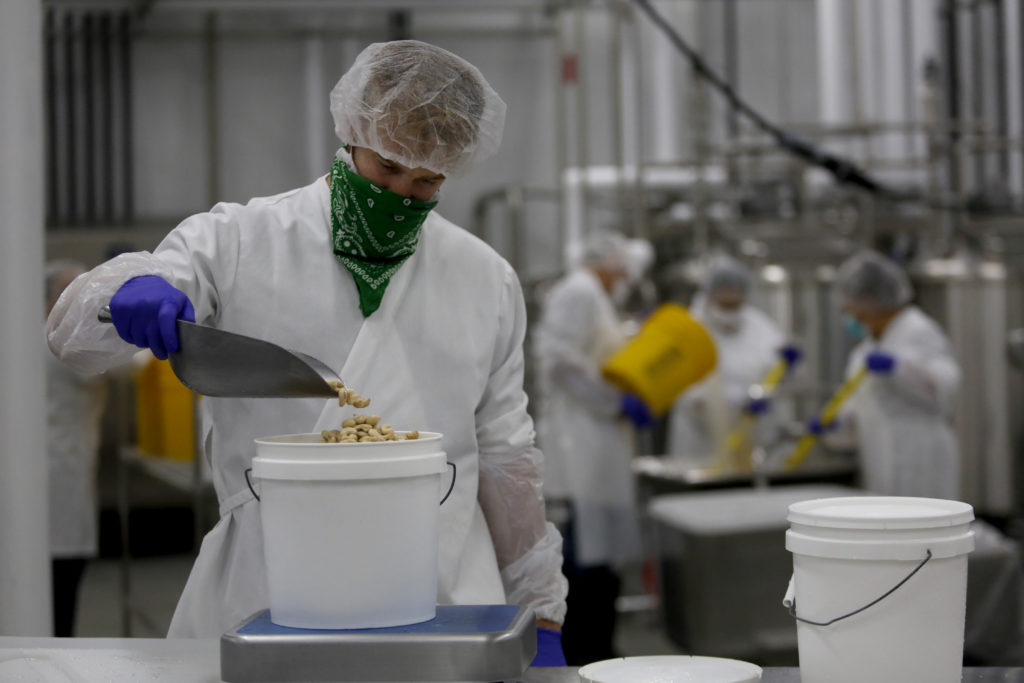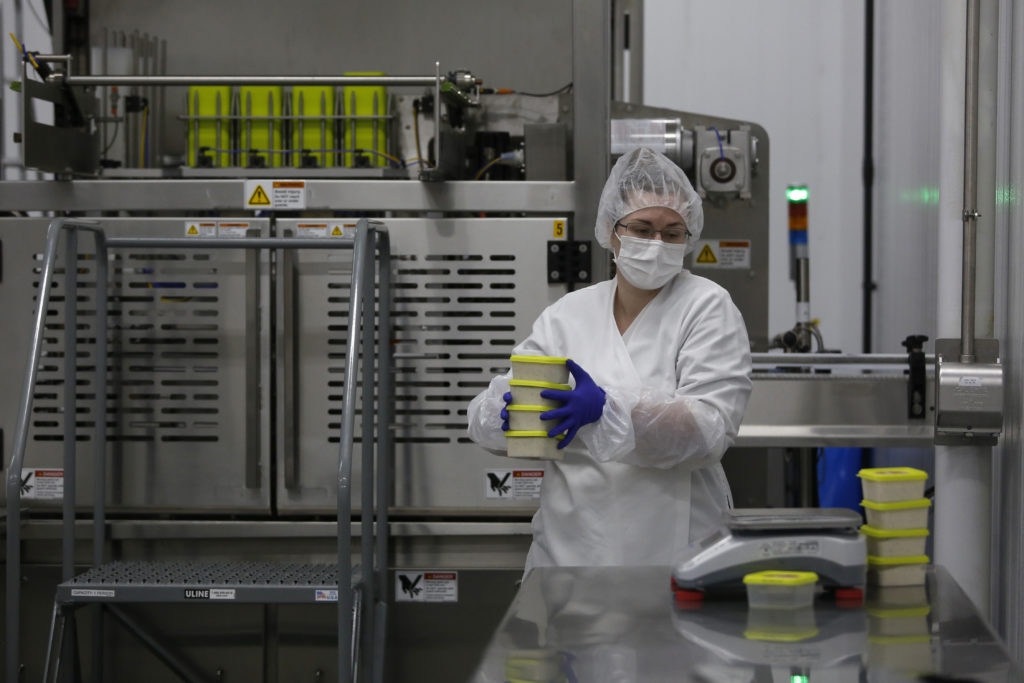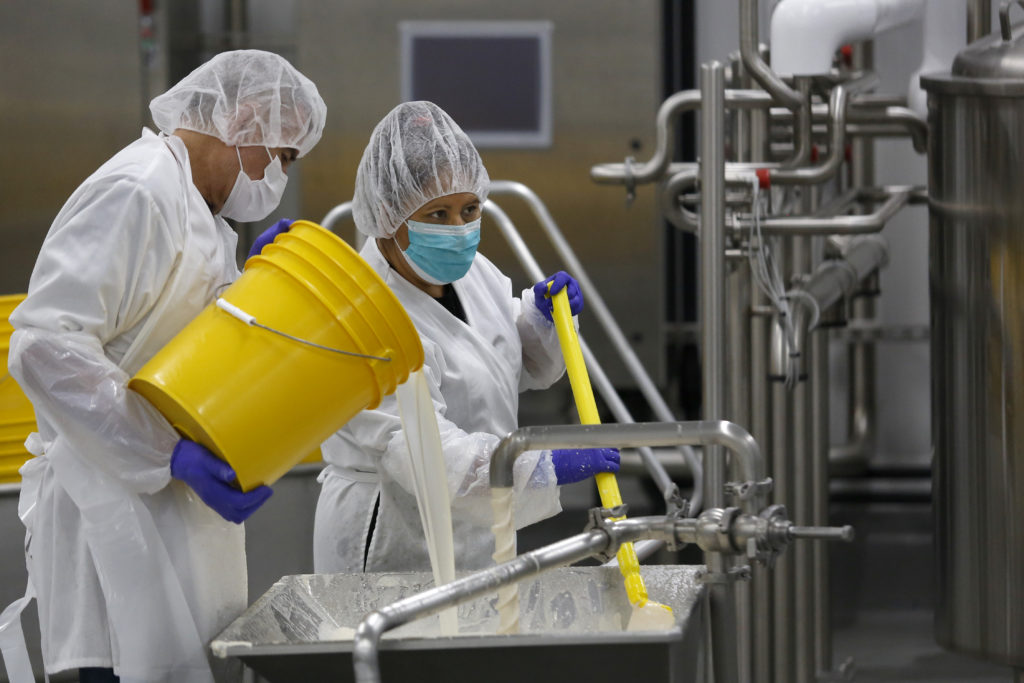“Vegan dairy” is no longer an oxymoron but rather a $5 billion industry that’s outgrown its hippy origins and become an artisan darling of the plant-based food movement.
Using ingredients like oats, coconut oil, nuts and vegetable proteins instead of animal products to mimic the taste, texture and mouthfeel of real dairy, two of the industry’s fastest-growing players, Sonoma County-based Miyoko’s Creamery and Wild Creamery, are gaining traction both nationally and internationally for their nondairy cheeses, buttery cream cheese, sour cream and dips.
As anyone who suffered through the early phases of the evolution of vegan cheese can attest, vegan dairy products weren’t always noteworthy — more vegan statement (a la Tofurkey) than party appetizer. But as diets change to include more mainstream meatless options — for better health, to reduce carbon footprints or over concern about animal welfare — diners are demanding quality alternatives like the Impossible Burger, Amy’s Drive Thru’s nondairy chocolate shake or a plant-based butter that spreads, melts and tastes like real butter.
With science, patience and fermentation wizardry, the inconceivable is becoming not just accessible but actually pretty tasty.
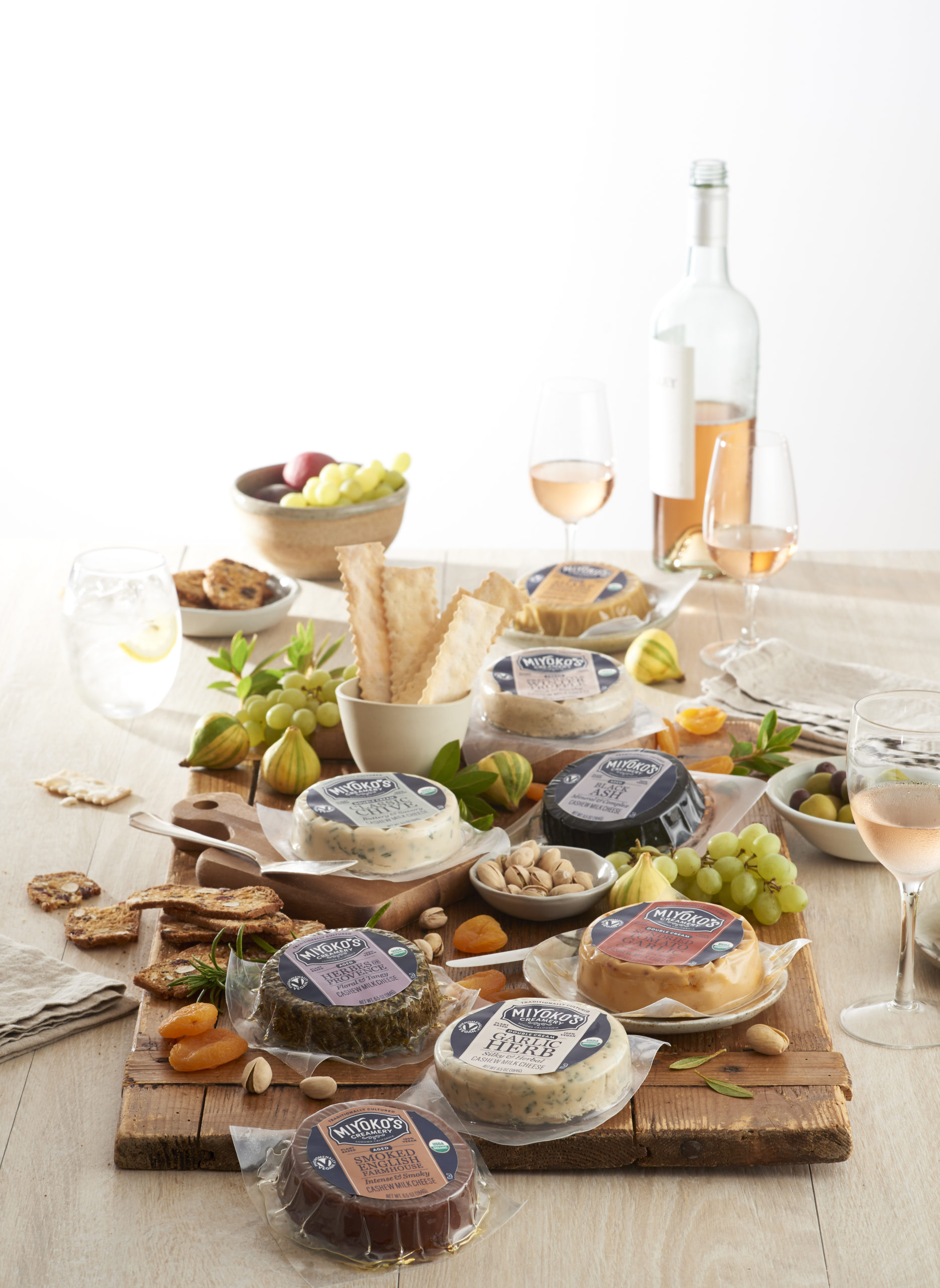
The upstart
For Wild Creamery owners Rick Goldberg and Chris Glad, the key to vegan dairy’s growth is something called lactobacillus.
Officially launched this year, Wild Creamery is an offshoot company of Wild Brine, makers of sauerkraut, kimchi, fermented salsas and sriracha. Based in Santa Rosa (the fermenter facility is in Windsor), the two companies are well-versed in this strain of lactic acid, required for fermentation such as pickling vegetables or making cheese and butter. Lactobacillus is also a natural preservative that gives tartness to sauerkraut or European-style butter. Existing naturally in the wild, it breaks down complex food molecules into simpler forms and changes their flavor and structure.
“There’s such a beauty in fermentation and the flavor profiles it offers,” Goldberg said. It’s that fermentation knowledge that gives their products a depth of flavor that’s both creamy and tart, more like actual dairy products.
Wild Brine cultivates its lactobacillus primarily from cabbage leaves, efficient carriers of the wild bacteria. It seemed natural to try to ferment plant-based dairy, using sauerkraut juice as their culture.
“Everyone else uses the same foundation,” Glad said. The ingredients in their products include coconut oil, sunflower oil, cashews, oats, cabbage and other vegetables. “But we don’t come at this as scientists. We come at it as food people. We want it to have that same creamy mouthfeel, but it’s all plant-based,” he added.
“You notice what we want you to notice in the flavors because they’re very different,” Glad said.
Serial food business entrepreneurs, Glad and Goldberg started the Creamery for a new challenge, doing all the research and development themselves. Though the pandemic put them back a year, they’ve released a Brie-style cheese, butter, cream cheese and sour cream alternatives in addition to dips like French onion and chipotle lime.
Goldberg and Glad are continuing their research and development, hoping to create plant-based butter and cheese 2.0, a next-generation product. Moving beyond nuts (which people can be allergic to), they hope to incorporate oats and quinoa to find a “magic bullet” to mimic the proteins in milk — basically, to make a more cheese-like cheese.
“People now are plant-based not just because they’re vegan, but because they care about the planet, sustainability and animal welfare,” Goldberg said. “They’re consumers with a cause, and they want to know who’s making it. The vegans may have started this industry, but it’s vegans and flexitarians now.”
Though Wild Brine and Wild Creamery declined to give annual sales numbers, they said they’re the largest natural food fermenters in the country, purchasing 10 million pounds of fresh produce per year.
The duo has big plans for more vegan products in the coming months, including roasted garlic butter, but said their ultimate goals are far ahead.
“We’re always looking forward and not back,” Glad said. “I think success is when someone randomly buys your product and brings it to a party and wants to share it.”
The activist
Miyoko Schinner believes that, like the horse and buggy or kerosene lamp, plant-based eating is a necessary transition and evolution of the food industry.
The founder of Miyoko’s Creamery, a 30-year vegan and animal sanctuary founder has tapped into a consumer zeitgeist of concern for animal welfare, sustainability and plant-based eating over conventional food production.
“Consumers are ready and want to participate in driving changes. They want to be part of the solution, and food choices are a way to vote for sustainability and animals,” she said. “It’s part of our own human evolution to become more humane, sustainable beings. That’s our responsibility on our planet to take care of it.”
As a chef and cookbook author, she created her vegan butter recipe out of necessity.
“There were spreads like margarine, but nothing I would have considered butter. I create foods that I crave myself,” Schinner said.
That’s translated into serious wins for a company grown from a niche vegan cheese seller launched in 2014 to an international socially-conscious brand of nondairy products, including cultured plant-based butter, plant-based cheeses, cream cheese and cheese dip. Miyoko’s Creamery recently received a $52 million cash infusion and expanded to a 29,000 square foot facility in Petaluma. Trader Joe’s carries her plant-based butter.
Although her products use oats, cashews, sunflower and coconut oil and are dairy-free, they are marketed as “butter” and sit next to traditional dairy butters, sour cream, and cheeses, the result of a hard-fought victory for Schinner and the vegan dairy industry.
Vegan butter is Miyoko’s bestselling product and has boosted company sales by more than 160%. Recently, the company prevailed against state regulators who challenged its right to use the word “butter” and other dairy-related terms in its advertising. Represented by the Animal Legal Defense Fund, the First Amendment lawsuit against the California Department of Food and Agriculture was a bellwether for what the state’s $6.4 billion dairy industry is up against.
That’s rubbed the local dairy industry the wrong way.
“I disagree with the decision,” said Tawny Tesconi, executive director for the Sonoma County Farm Bureau. “It’s not that I disagree with the idea of having cashew nut spread or nut juice, but I believe that when you look up the definition of milk is that it’s a white product from mammals,” she said.
Hoping to entice animal farmers to transition to plant farming, Schinner said the company is dedicated to financially supporting a dairy farm willing to convert to growing crops like legumes, hemp, oats or potatoes used at Miyoko’s Creamery.
“Consolidation is the biggest threat to small family farms. We recognize that and have empathy for these farmers, and we would like to help,” she said.
The company has also launched a local tourism campaign to bring together sustainable, inclusive, animal-friendly artisan wine and food producers for specialty experiences. Charter members include El Dorado Hotel & Kitchen, Renegade Foods, Green String Farm, Out in the Vineyard and Miyoko’s Rancho Compasión in Nicasio.
“We want to continue to lead, become change-makers not just with our products, but to pave a path for a more sustainable, compassionate food system. We want to become the leading global brand in premium plant-based dairy, and that’s a big goal,” Schinner said.


